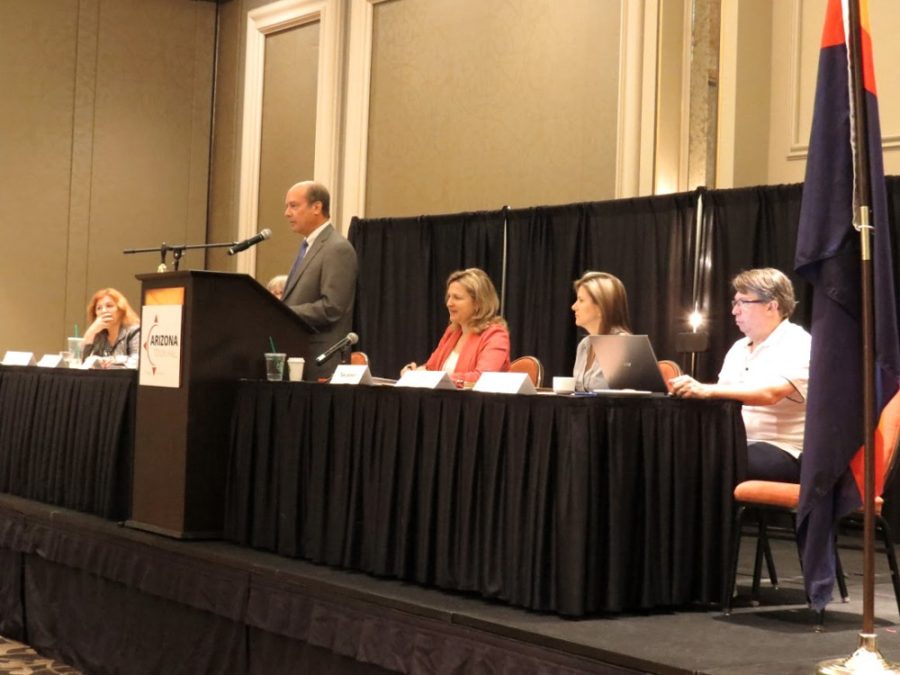Arizona citizens gathered at Casino Del Sol Resort for the 106th Arizona Town Hall from Sunday to Wednesday with hopes of addressing the state of Arizona’s current transportation.
Panels consisted of transportation experts, high school and college students as well as representatives from agencies such as the Arizona Department of Transportation. City council members and legislators were also present for the discussion.
On Monday, people discussed why transportation matters, how transportation relates to the economy, what we need to start looking for in the future of Arizona and what the strengths and challenges of Arizona’s transportation system are today.
On the second day, there were discussions about how to finance the needs for transportation and how to adapt for the needs of transportation in the future.
Tara Jackson, president of the Arizona Town Hall, said there is a big gap between what most Arizonans want and what the state leadership is doing.
“Students need to register and vote in the primaries,” she said. “Financing of education and transportation will not happen unless you vote.”
Jordan Hibbs, a graduate student in science and technology policy at Arizona State University, attended the town hall.
“It’s interesting how an average person in Arizona can hear how valuable transportation is to our infrastructure and Arizona’s economy,” Hibbs said. “We need to value our transportation systems in Arizona.”
Mary Grier, vice chair of the training committee at town hall and a retired lawyer, said she feels the town hall is important because it gives people from all over Arizona the experience of coming together and having a civil and courteous discussion about the issues they disagree on to come up with a unified solution.
“The students and younger generations have a real interest in making sure the transportation system that is going to serve them will be there,” Jackson said. Transportation can take a long time to get the money for and to build, but it is also directly related to the economy and quality of life.
A major point of discussion was how places in Tucson and rural areas suffer from pot holes and inadequate structures that are not being addressed.
“The most important issues identified were a lack of funding, leadership and understanding in the general public,” Grier said.
On the last day of the discussion, a key priority was getting more sustainable funding for transportation. According to the report for transportation in Arizona, it is underfunded by billions of dollars and delayed plans and investments have resulted in higher costs.
_______________
Follow Amber White on Twitter.








